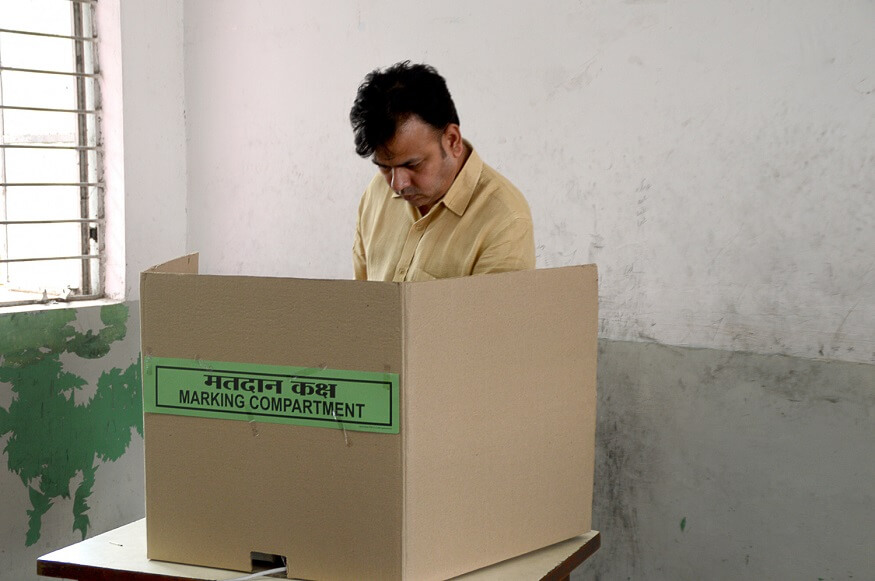The constitutional task of deepening electoral democracy through institution building, transparency & accessibility, adopting the inclusive approach, and strengthening it through process simplification and proactive interventions has been accomplished by the Election Commission of India. However, the Commission has multiple technological tools now to bring in more productivity and efficiency, Better reach, and accountability in the conduct of fair elections in current times.
A major role in elections has been played by the ecosystem of innovations like new apps in ECI, especially mobile apps. Better personalization, ease of sending notifications, and mobile-specific features such as camera access, contact list access, Geographic Navigation System, phone calls, accelerometer, compass, and the ability to work offline are provided by the mobile apps, thereby making them more user-friendly for voters and Election Officials.
This opportunity has been used by the Election Commission of India, and a suite of 20 Apps has been developed that provides a perfect ecosystem for rolling the giant wheel of the electoral system from Registration to Results. The following four technological phases in elections are used by the ecosystem of these applications:
Non-Election: The continuous phase when voters register into the system and no major elections are scheduled is depicted by this phase.
Pre-election: This phase, characterized by Election Planning and preparation, generally starts one year / 6 months before the elections and extends up to the date of the announcement of elections.
In-elections: The most important phase, which starts from the date of the announcement, runs through the poll day, and ends with the conclusion of counting, is represented by this phase.
Post-elections: The time when reports are generated, and post-audits are conducted after the end of the elections is signified by this phase.
Innovations like applications have been designed so carefully that they cover all the phases effectively.
Also Read : Indian National Olympiad
Phase 1: Non-Election Phase
The first application for the non- election phase, where there is no obvious activity undertaken for the preparation of an election but is primarily characterized by voter enrolment, improvement of polling station facilities, as well as electoral roll expansion. Apart from polling station rationalization, the Election Commission of India uses ICT applications for new voter registration, correction of entries, and migration situations.
Many innovations in the non – election phase like following four methods by which a new voter is engaged are briefed below.
Voter Portal
The first method is through the use of the Voter Portal. Users can look for names on the electoral roll using their EPIC number or personal information, register new voters, correct information, and move within or outside of the assembly constituency using the portal. Using this app, the voter may easily submit the form and upload the necessary papers.
The combination with the Digi locker feature makes it simple to upload documents.
The Voter Helpline Mobile App
It can be utilized as the second method. The award-winning Voter Helpline Mobile App is employed for this purpose. The connection of five databases for ECI is facilitated by this mobile application, thereby ensuring that seamless services are presented to the citizens. The names of Indian Voters can be searched from 920 million electors in a fraction of a second using this mobile application. The name, polling station, details on the voter card, and the election schedule can be verified by the voter. If a voter ID card is already possessed by the voter, then the details can be verified by simply scanning the barcode of the voter ID card.
Short Message Service (SMS)
The serial number of the Electoral Photo Identity Card (EPIC) can be sent to 1950 by the voter, and all details such as the name, father’s name, serial number, and name of the Assembly constituency will be instantly provided.
Toll-Free Number
This number, 1950, is one universal number available across India, which can be called from any mobile operator, and election-related issues can be discussed in more than 22 languages. The agents on duty are trained to do operations on a universal voting portal for finding the names of the voters, processing requests for new forms, and filing complaints in case of any issues.
Persons with Disabilities (PWD) App
The Election Commission had declared Lok Sabha Elections 2019 as accessible elections. Special efforts were made to ensure ICT enablement for Persons with Disabilities (PWD).
Some more Innovations have been added in portals like ECI RTI, SVEEP portal, etc. are some of them.
Phase 2: Pre-election
The Electronic Voting Machines (EVM)
The Electronic Voting Machines (EVM) Management System (EMS) is initiated six months to one year before the election, depending on the nature of the election. A large-scale planning exercise is undertaken to prepare for the material and resources, including assessing the requirement of machines. Subsequently, the machines are transferred from the manufacturer to district warehouses and from one district warehouse to another district warehouse within the States, based on the requirements.
To track and record the movement of each machine from placement to destruction, a new centralized software application called the EVM Management System (EMS) was developed. The EMS is designed to manage the inventory of EVM units, tracking them from manufacturer to state, state to state, and district to district. A highly secure, non-interrupted, and non-manipulated distribution of machines from one place to another, managed by district warehouses, is ensured by the Election Commission using this web application.
Also Read : Benefits of studying at top arts colleges abroad
Phase 3: In-election from the announcement date to the date of the poll
cVIGIL App
The Citizen Vigilance (cVIGIL) mobile application, designed by the Election Commission of India, provides an opportunity for election code violations to be reported directly by citizens. It is widely available, easy to use, and generates legally tenable and prosecutable information for administrators. The ICT application is used by Chief Electoral Officers, District Election Officers, Returning Officers, Flying Squads, and the Police for the prompt disposal of Model Code and expenditure violation cases.
MCC Violation Portal, Candidate Nomination Application, Encore Scrutiny Application, Candidate Affidavit Portal and ENCORE Nodal App are also some portals available.
Phase 4: Post Elections Election Expenditure App
The Election Expenditure App is developed for monitoring the day-to-day election expenditure incurred by the candidates. The monitoring of election expenses must be conducted regularly during the campaign period to ensure the proper and accurate accounting of every election expenditure incurred by the candidates and political parties during this period.
The Index Card application is an important module of ENCORE. The final statistical report of the election is managed in the Index Card application. Every detail of the election is reconciled with the physical record, validated, and verified by the Returning Officers and Chief Electoral Officer of the State. Subsequently, it is published on the website for public viewing and analysis. The launch of the Index Card Application has simplified the process of publication and verification.
Conclusion
At EuroSchool the child gets to learn and understand the end-to-end processes of elections and offers valuable assistance about innovations in the Election Commission of India.
The suite of applications developed recently provides interoperability between several departments of ECI, thereby improving the management and sharing of data. Secondly, the ICT platform of ECI enhances business processes for all electoral staff and enhances transparency in the election management flow. Thirdly, the integration of software allows ECI to easily develop IT facilities and respond timely to the growing expectations of the elections and electors. Finally, these ICT applications have made communication simple, decreased the time and effort necessary, improved functionality, and increased control, resulting in a rise in the efficiency of election administration.











